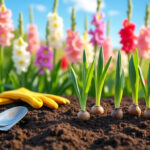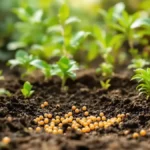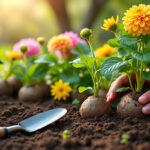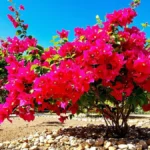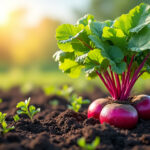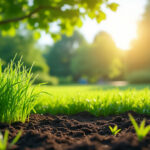The importance of water for plants goes far beyond its appearance. Often perceived as dirty, like the water used for cooking vegetables or aquarium water, it is actually a valuable resource filled with essential nutrients such as nitrogen, phosphorus, and potassium. Using this water, rather than tap water containing harmful chemicals, not only promotes sustainability but also enhances the health of your garden by creating a balanced natural environment.
The essentials of the information
- Water, even if dirty, is crucial for plants.
- It promotes photosynthesis and the transport of nutrients.
- Using aquarium water enriches the garden and reduces waste.
- Opt for an eco-friendly approach for a balanced environment.
This water you think is dirty is actually a valuable resource for your plants
Water, although it may appear dirty, is essential for plant growth. Photosynthesis, a key process that allows plants to convert sunlight into energy, relies on water. Without it, plants cannot absorb the nutrients necessary for their development. Thus, even stained or slightly polluted water can contain beneficial elements that help plants grow optimally.
The benefits of water for photosynthesis and nutrient absorption
This resource also serves as a transport mechanism for nutrients in the soil. With water, minerals and nutrients present in the soil are dissolved and can be easily absorbed by plant roots. This process is crucial for ensuring an adequate supply of nutrients such as nitrogen, phosphorus, and potassium, all essential for plant health.
The dangers of tap water for the garden
However, it is important to note that tap water often contains harmful chemicals. These substances, which may be present due to water purification and piping, can negatively impact soil and plant health. Therefore, it is best to avoid using tap water when watering your garden.
Vegetable cooking water, an asset for the garden
Surprisingly, water that might be considered waste, such as that from cooking vegetables, can enrich your garden. In fact, this water contains nutrients released by the vegetables, making it a valuable resource for the soil. Using this water to irrigate your plants will provide them with additional nutrients that will promote their growth.
Aquarium water, a hidden treasure for gardeners
Likewise, aquarium water, often seen as impure, is rich in essential nutrients from fish waste and organic debris. This water requires different treatment than other water sources because it is abundant in nitrogen, phosphorus, and potassium, therefore promoting a healthy growth environment for plants. Its use not only fosters sustainability but also helps reduce water waste.
Recycling water for a sustainable garden
Water recycling is an eco-friendly approach that is beneficial for the environment. By using unconventional water sources, such as aquarium water or cooking water, we contribute to a natural cycle where resources are preserved. This method reduces the need for drinking water while supporting plant health.
Beware of chemicals when watering
It is also crucial to exercise caution regarding the potentially harmful chemicals present in water used for irrigation. Contaminated water can harm plants and reduce soil fertility. Therefore, it is advisable to prefer more “natural” water sources to maintain a healthy and balanced garden.
Creating a natural and balanced environment with recycled water
By adopting these water recycling practices, one can not only create a natural and balanced environment in their garden but also participate in a greener and more sustainable approach to horticulture. Recognizing the hidden value of water that we might initially consider “dirty” can transform gardening methods and encourage stewardship towards our ecosystem.




